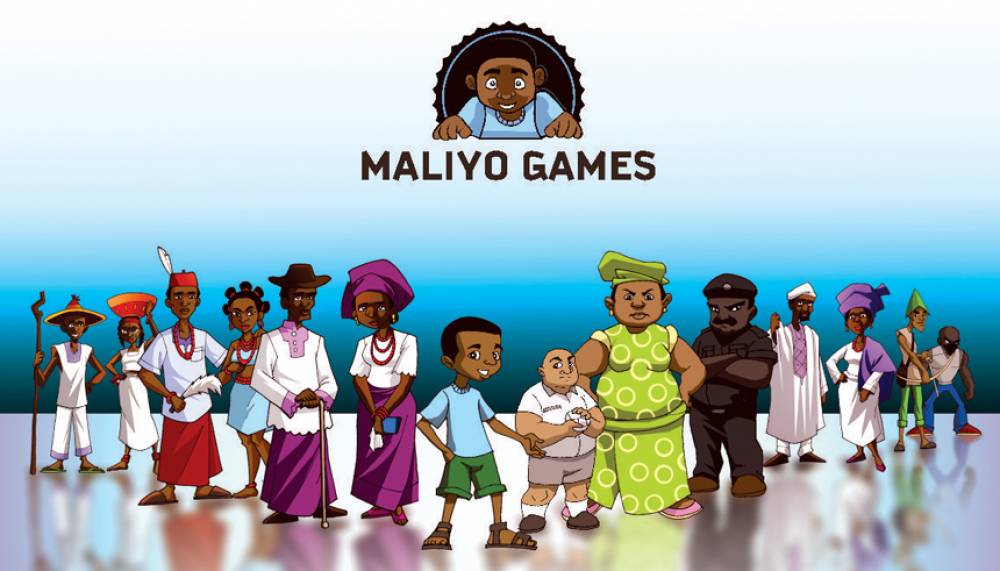
Google will train 500 African mobile game developers in partnership with Maliyo Games
Google will train 500 African mobile game developers in partnership with Maliyo Games
Google's interest in Africa's tech talent pool continues to grow, and the tech giant has partnered with Maliyo Games, a Nigerian-founded game development studio, to open applications for a mobile game developer training program. The program, dubbed GameUpAfrica Bootcamp, is open to interested individuals in Kenya, Ghana, and Nigeria.
The applications, which opened on Monday, July 19, 2021 and will close on August 2, will provide mentorship and relevant tools to developers interested in pursuing a career in game development. From August 16 to December 23, 2021, selected applicants will participate in a virtual training program in which they will learn how to refine, package, and develop Android games.
As this is a project-based learning program, successful participants will be evaluated at the conclusion of the training period on their completion of the curriculum and their ability to successfully publish a game on the Google Play Store.
The training will consist of three levels: Fundamentals of Game Development, Succeed on the Play Store, and Publish Your First Game. Successfully completing one level validates progression to the next.
About GameUpAfrica Bootcamp
The GameUpAfrica Bootcamp is an adaptation of Maliyo Games' existing training program, which began in 2020. It is a curriculum-based training program that prospective employees must complete before being hired.
Between 2020 and now, the company has trained seven individuals and hired one. Intriguingly, the program evolved out of a desire to address the issue of talent acquisition.
“We launched this program because we are constantly on the lookout for talented individuals to join our team as a game development studio. And, in light of the lack of a structured education system in Nigeria that produces competent game developers, we decided last year to launch an in-house program to train individuals interested in becoming game developers.” That is Hugo Obi, Founder, Maliyo Games.
The company was founded in 2012 and has grown to become one of Nigeria's oldest Android game development studios. According to the founder, this is one of the characteristics that drew Google's attention to the project, in addition to the fact that Maliyo Games has previously published some Africa-themed games on the Google Play Store.
Aboki Run (similar to Temple Run), Whot King, and Jungle Escape are notable mentions. Others, such as Danfo Racing, are still in the works.
While the curriculum was initially intended to be limited to the Nigerian market, Google's partnership expanded its reach to multiple locations, bringing the total number of selected applicants to 500. Google will also support app store success, which includes successful content publishing on the Google Play Store.
In addition, this program will assist beginning game developers by providing them with a mentor pool. Mentorship will be provided by Maliyo Games staff as well as crowdsourced mentors from the international gaming ecosystem, based on the number of admitted candidates.
Maliyo Games’ fit
As is customary for content created by many indigenous companies, Maliyo Games ensures that its content reflects the African landscape.
“This is not to say we don't do generic work, such as designing for third parties and meeting their specifications, or working as part of a production team where we focus exclusively on one aspect of web development. For us, it's always been about being inspired by Africa. And this is what distinguishes us in the gaming community,” explains the founder.
According to Obi, the ultimate goal of the GameUpAfrica Bootcamp — which may become an annual event — is to upskill individuals and increase the number of game developers in Africa's gaming ecosystem. Additionally, to increase the amount of African-authored content available on the Google Play Store, and to assist the company in identifying and recruiting talent as it expands its team.
Obi reveals that in order to accomplish the former, top candidates from the Bootcamp will be connected with other studios across the continent. Internal collaborations with studios in Kenya, Ghana, and Senegal already exist.
Apart from that, Maliyo Games is a member of the Africa Game Developer Community, through which it connects with game developers in South Africa, Uganda, Cameroon, and Ethiopia. Obi believes that the Bootcamp will eventually serve as a talent pipeline for these studios.
The gaming industry in Africa
The African gaming industry has been gaining momentum over the last three years as broadband and smartphone penetration have increased. Indeed, despite the pandemic, prospects are improving.
Obi compares games to music and movies, not only as a means of escape, but also as universally accepted entertainment regardless of its source.
He identifies three major impediments to the country's gaming industry's growth over the last decade: talent, distribution, and monetisation.
According to him, the opportunities that have arisen in the last nine years of running Maliyo Games are thinning out the effects of these challenges. For example, global distribution channels — such as app stores — now exist to facilitate reach and marketing, and payment solutions abound.
This allows creators to focus exclusively on content creation and distribution. If anything, indigenous content ensures global consumption. Obi's goal is for a Bootcamp product to become a top-grossing game on the Google Play Store by the end of 2022.
With initiatives like these, Africa's gaming community may be on its way to becoming a significant contributor to the global mobile gaming industry, which is worth over $121.1 billion.

